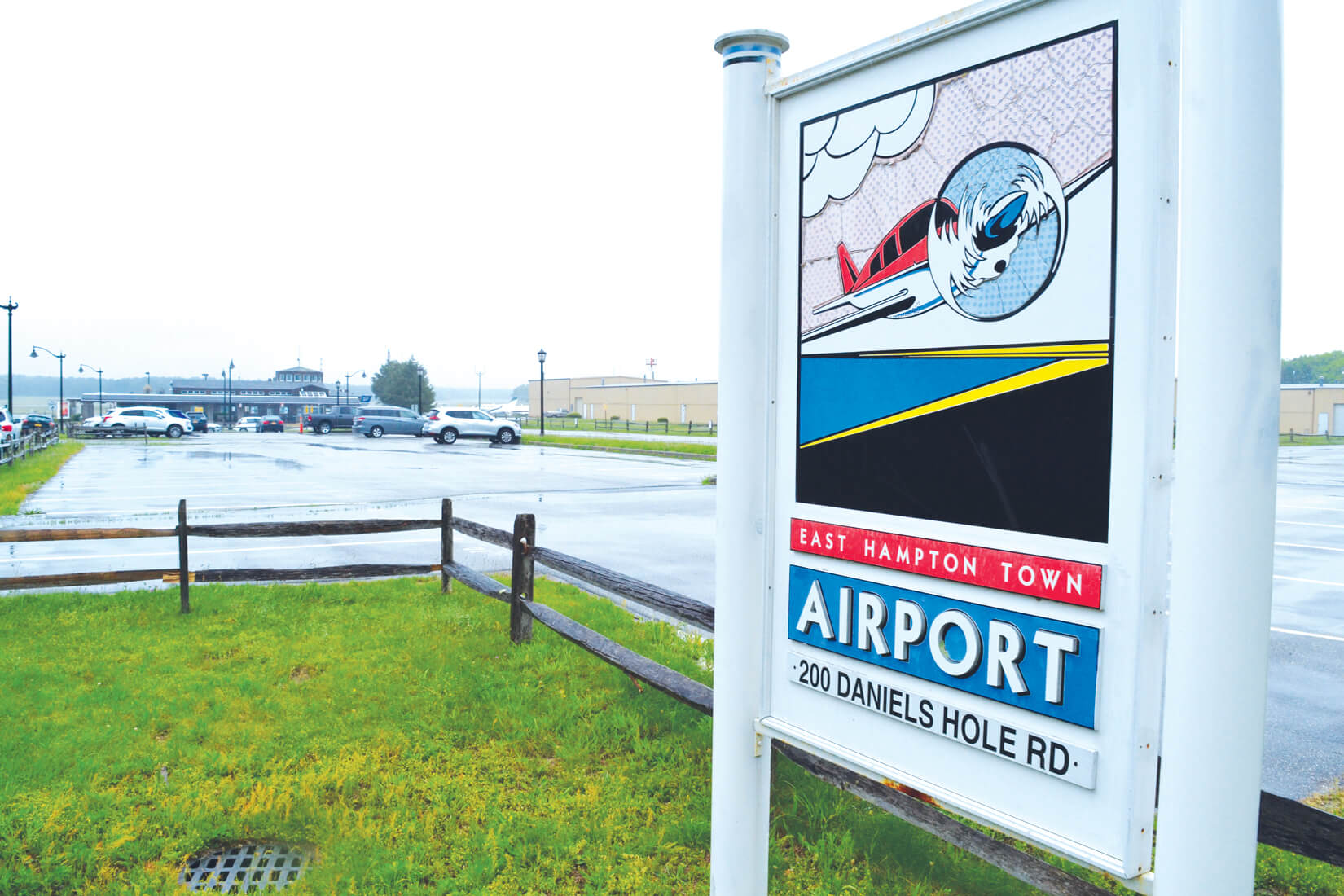More Testing Ordered: Was The Airport The Source?

As the Suffolk County Water Authority announced this week it was expanding its search for contaminated wells around East Hampton Airport, it also acknowledged for the first time that East Hampton Town had told state officials PFCs or PFOA, the chemicals in question, had indeed been used and stored at the airport.
“Since the East Hampton Airport indicated that it had used or stored products that may have contained PFOS and PFOA, the state requested that the Suffolk County Department of Health Services sample drinking water supplies near the airport,” said Grace Kelly-McGovern, a SCWA spokeswoman, on May 26.
The fear is the chemicals may have spread even farther than originally thought, perhaps as far as Sagaponack in Southampton Town and southeast to Beach Lane and Georgica Pond in southern Wainscott. Merchant’s Path, west of the airport, will be tested as well.
Residents in these areas have been urged not to drink well water until testing is completed.
The decision to increase the testing area indicates officials likely believe the contamination is more widespread than originally thought and comes at a highly contentious time for Wainscott.
A class action lawsuit seeking damages for area residents whose health may become compromised from drinking and bathing with the water has been filed. East Hampton Town recently allocated emergency funding to install filters at homes with private wells. And the town intends to form a water district and pipe in county water for an estimated $24 million, a cost that will be shared by Wainscott residents and town taxpayers.
East Hampton Town Supervisor Peter Van Scoyoc did not immediately respond to an email request for comment over the holiday weekend.
So far a total of 439 properties potentially served with private wells have been identified. A total of 302 wells on 293 properties have been tested, and 135 have tested positive; 122 residents have not responded to repeated requests to allow SCWA to come on their properties. Nine wells have been found to contain perfluorinated compounds, or PFCs, above the federal health advisory level of .07 parts per billion.
Bottled water is being made available free of charge to residents in the survey area who use a private well and may be obtained by calling the Town of East Hampton Purchasing Department at 631-324-4183 Monday through Friday or emailing jcarroza@ehamponny.gov. Residents in the expanded testing area who live in the Town of Southampton can obtain bottled drinking water by contacting the Town of Southampton at jwilson@southamptontownny.gov or by telephone at 631-283-6055.
Bathing and showering are not expected to be a health concern even if PFCs are present in the water supply.
At least one East Hampton official said privately as recently as a month ago that the contamination might be coming from a privately owned parcel or parcels not owned by the town. If true that would have alleviated at least some of the town’s legal culpability.
The town may have admitted some responsibility as early as 2017 in correspondence with the New York State Department of Environmental Conservation. “Due to the potential for PFCs to cause environmental contamination, [DEC] conducted a survey of facilities across the state that may have used products containing PFOS and PFOA,” Kelly-McGovern said via email.
The compounds, known as perfluoroalkyl and polyfluoroalkyl substances or PFAS, are currently unregulated by the federal Environmental Protection Agency. However, the agency has identified two of these substances, PFOS (perfluorooctane sulfonate) and PFOA (perfluorooctanoic acid), as contaminants of emerging concern.
There is ample evidence from class actions suits that companies like 3M, which have used the chemicals in their products dating back 70 years, made a concerted effort to minimize the dangers and successfully lobbied government agencies not to be concerned about it.
Last February 3M — once short for Minnesota Mining & Manufacturing — agreed to pay $850 million just as a suit against it was about to go to trial. It revolved around 3M’s disposal of perfluorochemicals, used for years in products like Scotchgard.
The state says the money will be used to clean up and safeguard drinking water in the eastern suburbs of St. Paul. The state accused 3M of contaminating groundwater as it disposed of PFCs over decades.
The Osborn Law Firm on behalf of Wainscott resident Kim Ellen Shipma is suing not only East Hampton Town but 3M and several manufacturers of firefighting foam. The suit alleges “PFOS and PFOA are toxic” and that they pose “increased risk in humans to testicular cancer, kidney cancer, thyroid disease” and other conditions. Exposure has been proven to be especially dangerous to fetuses.
rmurphy@indyeastend.com



